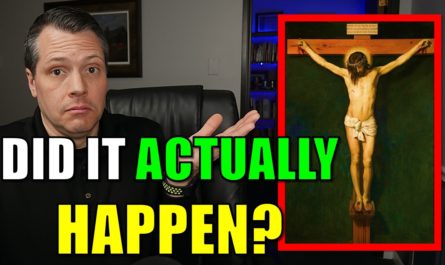If I were to make a prediction that something that was a fairly normal occurrence would happen, and it came true, you probably would not be overly impressed with me. After all, everyone can get lucky on occasion.
But if I predicted something unthinkable and it happened just as I said it would, your awe at my capabilities would be heightened. How did I know that? I must have some kind of superpower.
That is exactly what we have with the resurrection of Jesus. Not only was the unthinkable prophesied, but it actually happened.
I don’t know about your experience, but it’s not normal for me to see someone rise from the dead. That’s quite a feat, in my book. Add to that repeated prophecies and multiple people making the same claim, and you have nothing short of a miracle.
So, let’s start with the Jewish Scriptures, which we call the Old Testament. Is the resurrection of Jesus prophesied in the Hebrew Scriptures? I say yes.
Before we get to the Old Testament, though, we have to look at the New Testament, particularly Paul’s letter to Corinth.
For I delivered to you first of all that which I also received: that Christ died for our sins according to the Scriptures, and that He was buried, and that He rose again the third day according to the Scriptures, (1 Corinthians 15:3-4)
Paul believed that Jesus both died and rose again “according to the Scriptures.” He knew that the “Old Testament” (as we call it today) prophesied that Jesus would rise. But where does it say so?
In the next article (and video), we will look at Isaiah’s prophecies, but here we will consider the idea of resurrection itself. Does the Old Testament teach the idea of resurrection?
Yes, it does, and as we will see when we return to I Corinthians 15, that the resurrection of the saints is made possible by the resurrection of Jesus.
So, where does the Old Testament teach the idea of resurrection? Again, we go to the New Testament, where Jesus has yet another run-in with the religious leaders of His day. This time His opponents are the Sadducees, who are distinct from the Pharisees primarily in their rejection of the idea of resurrection. Knowing that the doctrine of Jesus included a resurrection, they attempted to catch Him in a trap.
The same day the Sadducees, who say there is no resurrection, came to Him and asked Him, saying: “Teacher, Moses said that if a man dies, having no children, his brother shall marry his wife and raise up offspring for his brother. Now there were with us seven brothers. The first died after he had married, and having no offspring, left his wife to his brother. Likewise the second also, and the third, even to the seventh. Last of all the woman died also. Therefore, in the resurrection, whose wife of the seven will she be? For they all had her.” (Matthew 22:23-28)
Gotcha there, Jesus! If there were a resurrection, you have a problem, because there are seven men claiming one woman!
If only catching Jesus in a trap were that easy.
Jesus answered and said to them, “You are mistaken, not knowing the Scriptures nor the power of God. For in the resurrection they neither marry nor are given in marriage, but are like angels of God in heaven. But concerning the resurrection of the dead, have you not read what was spoken to you by God, saying, ‘I AM THE GOD OF ABRAHAM, THE GOD OF ISAAC, AND THE GOD OF JACOB’ ? God is not the God of the dead, but of the living.” (Matthew 22:29-32)
Basically, Jesus says, “You don’t have a clue what you’re talking about.” After all, resurrection life is different than earthly life. In earthly life, we have marriage. In resurrection life, we do not.
But marriage was not the primary question here—it was His belief in resurrection. So, Jesus quoted from Exodus 3:6, where God claims to be the God of Abraham, Isaac, and Jacob. All three of these patriarchs had been dead for centuries—even when God originally spoke the words in Exodus. If they were permanently dead, God would be the God of dead people. No real glory in that. However, they were not permanently dead—they would be raised. Therefore, God was the God of the living. If the Sadducees believed (or even knew) the Scriptures, they should recognize that resurrection is a fact.
So, that’s how Jesus interpreted Exodus 3:6. If He interpreted it that way, then that is probably the way we should interpret it.
The idea of resurrection also appears other places in the Old Testament. Here is what I would consider a clear example:
And many of those who sleep in the dust of the earth shall awake, some to everlasting life, some to shame and everlasting contempt. (Daniel 12:2)
So far, this does not prove the resurrection of Jesus—just the resurrection of the saints. But here’s the key—what makes the resurrection of the saints possible? The resurrection of Jesus.
If we go back to I Corinthians 15, we find that Paul explains this.
But now Christ is risen from the dead, and has become the firstfruits of those who have fallen asleep. For since by man came death, by Man also came the resurrection of the dead. For as in Adam all die, even so in Christ all shall be made alive. (1 Corinthians 15:20-22)
It is in Christ that we will be made alive—both Old Testament saint and New Testament believer. The only reason any person can rise is because Jesus rose. While the Old Testament prophesies resurrection, the New Testament tells us it is possible because of Jesus.
In the next article, we will take a look at what Isaiah said specifically about the resurrection of Jesus, then we will look at how Jesus prophesied His own resurrection.



